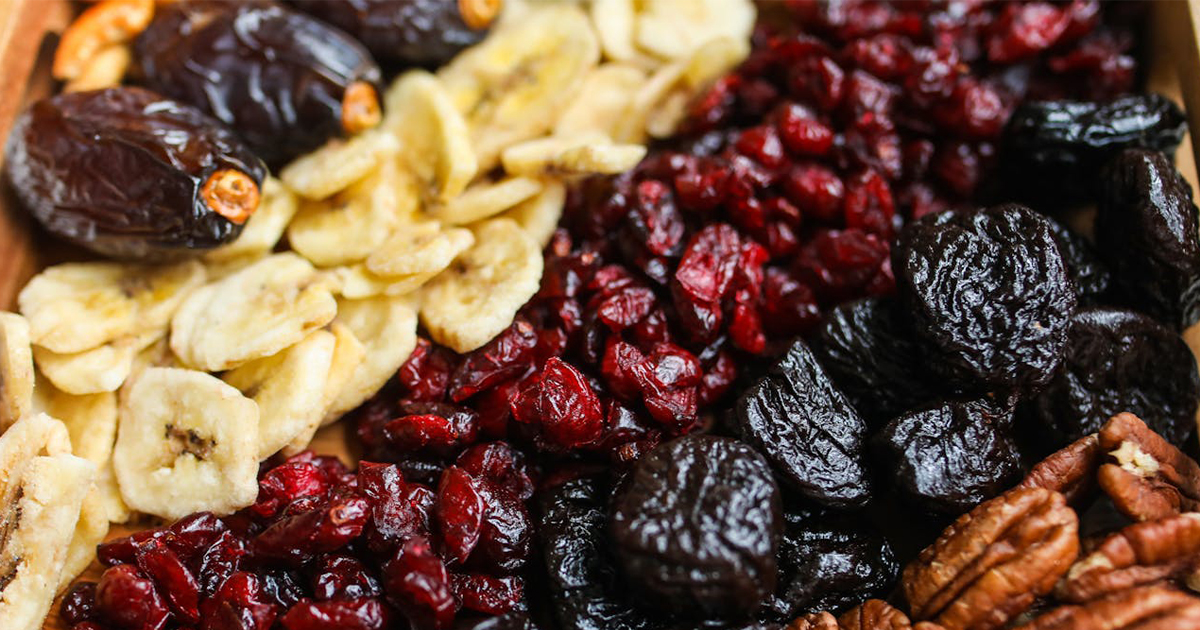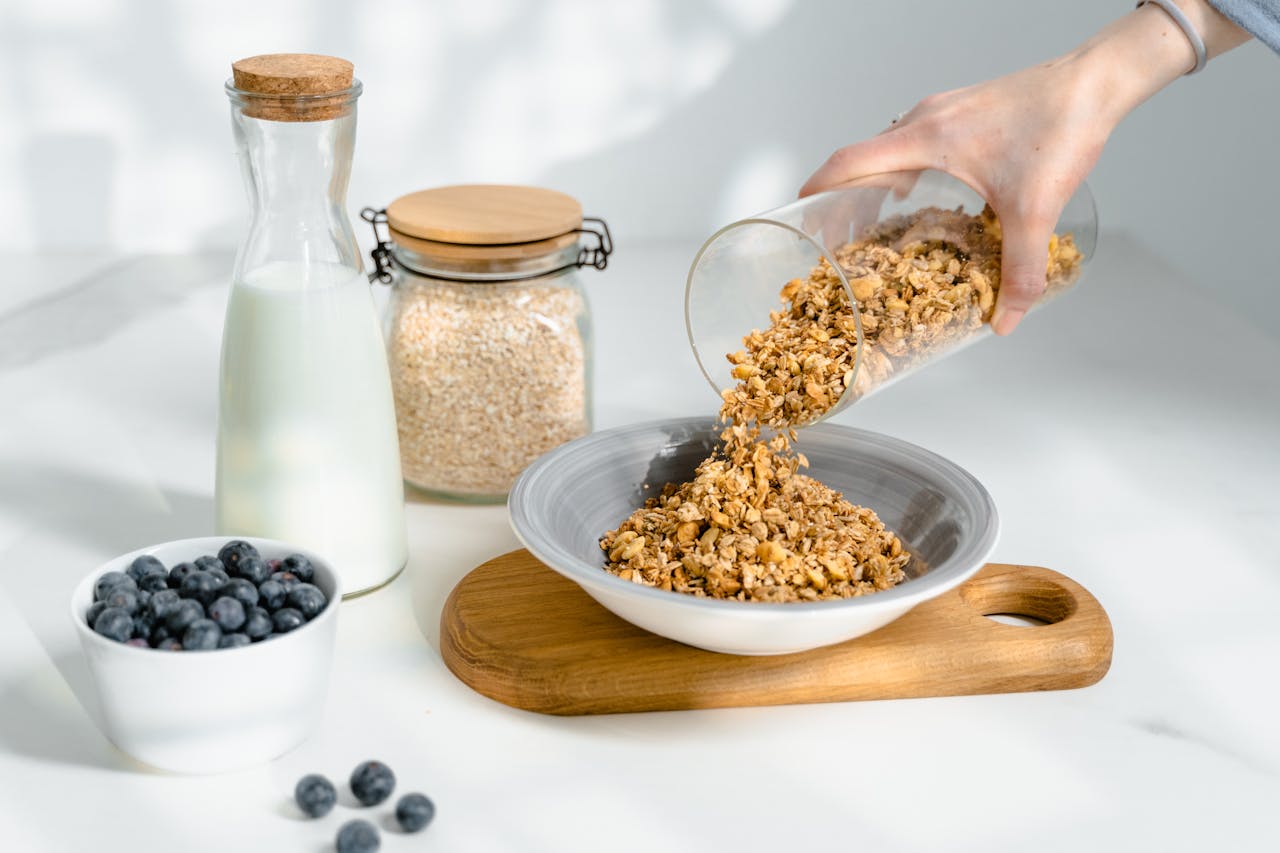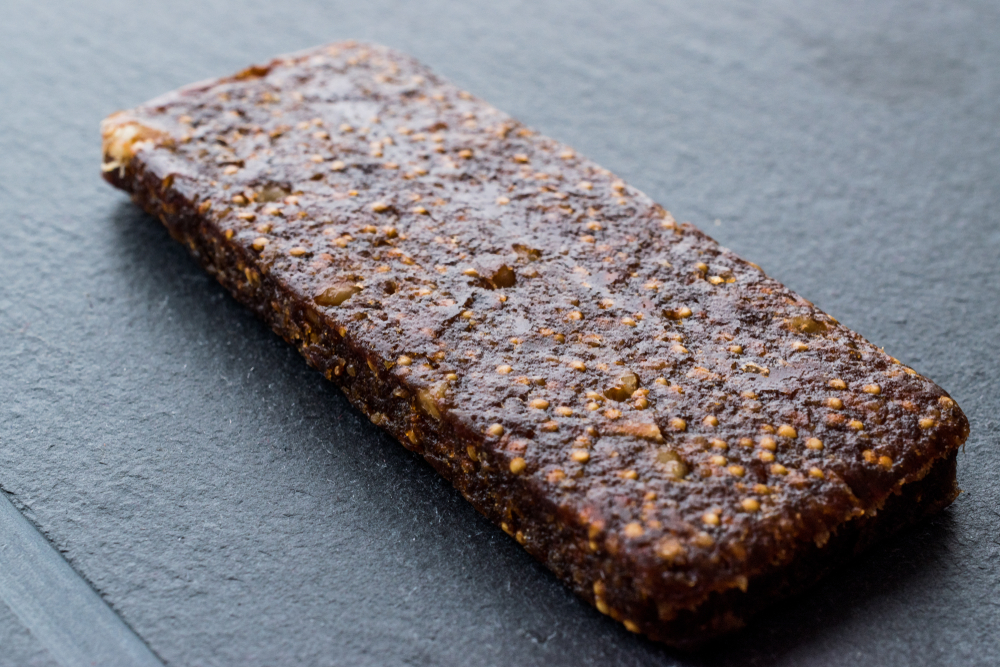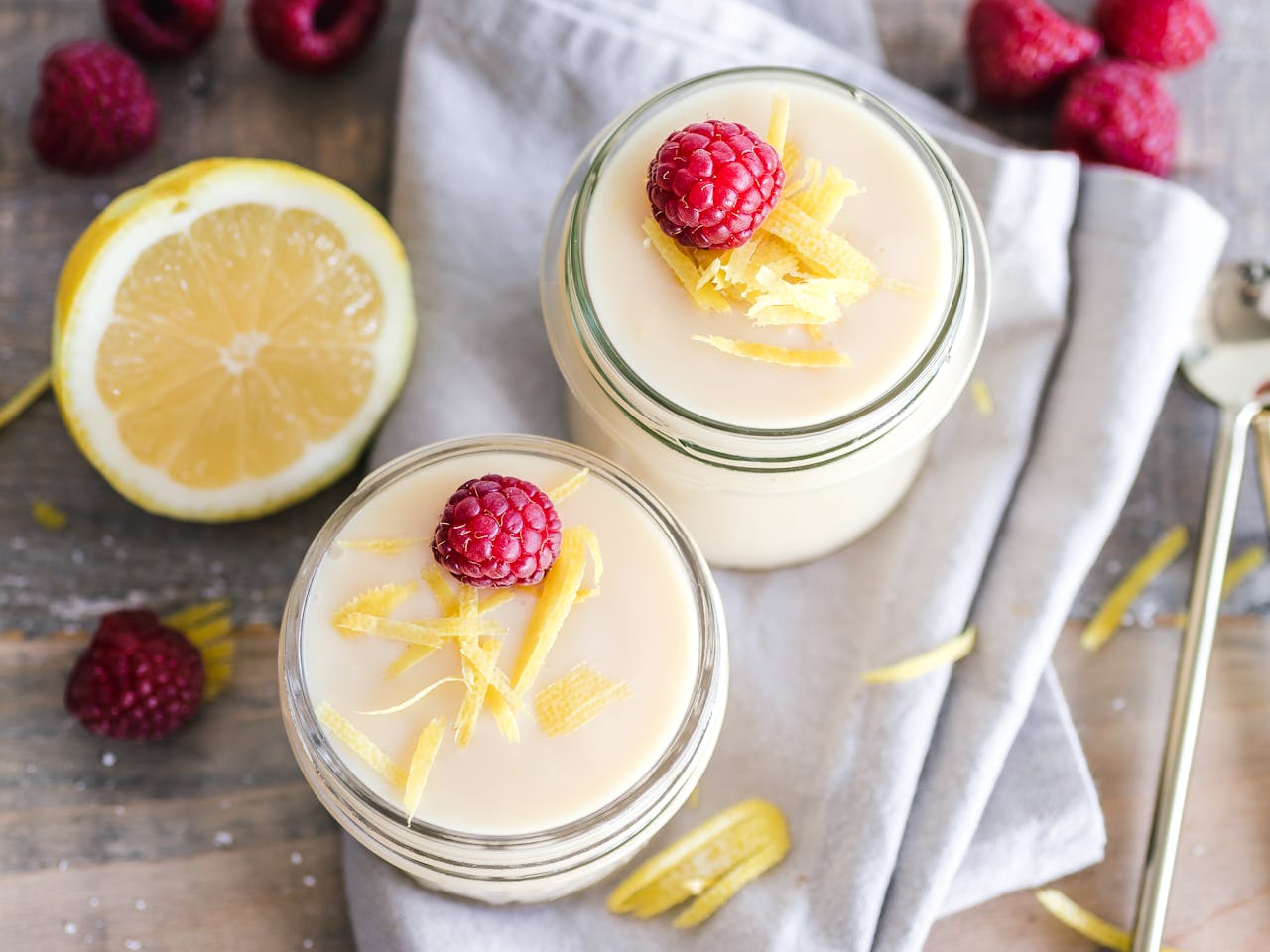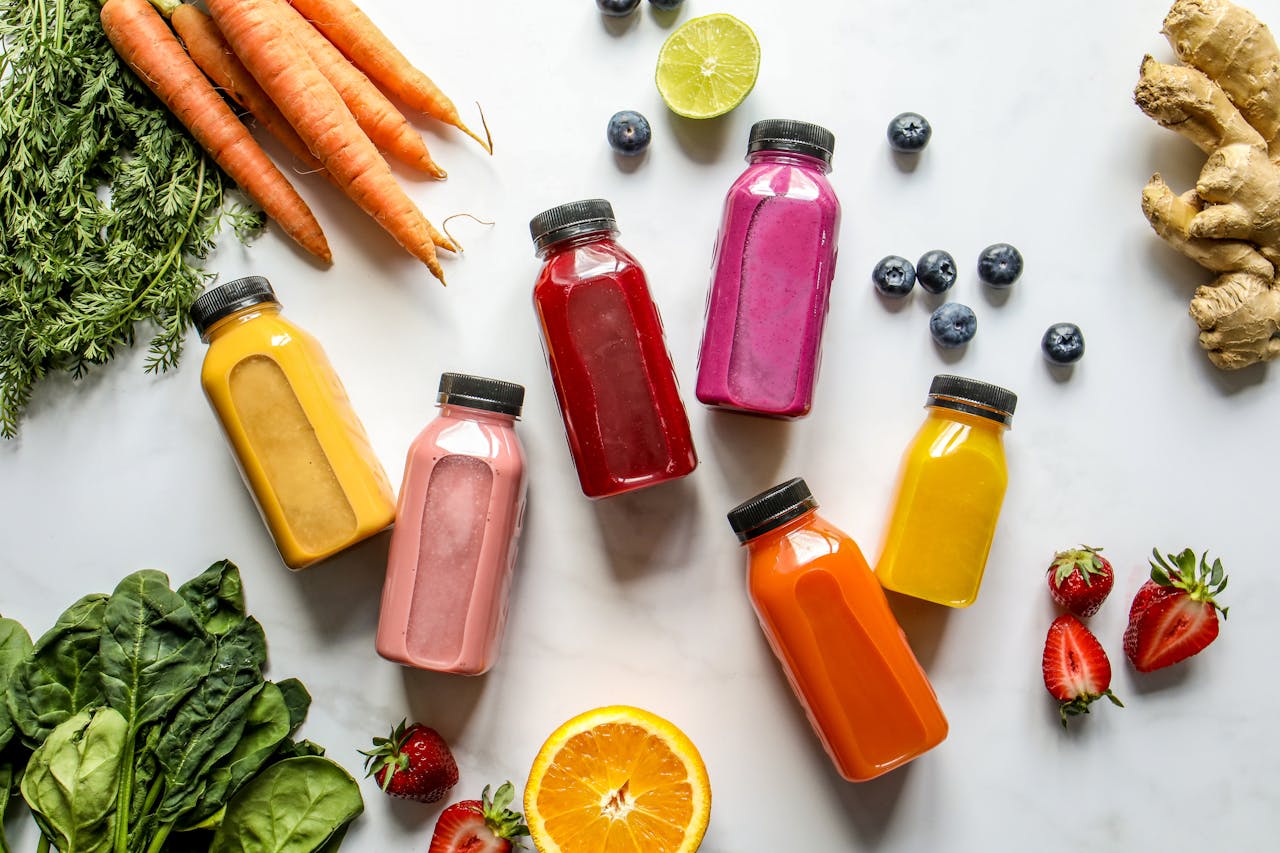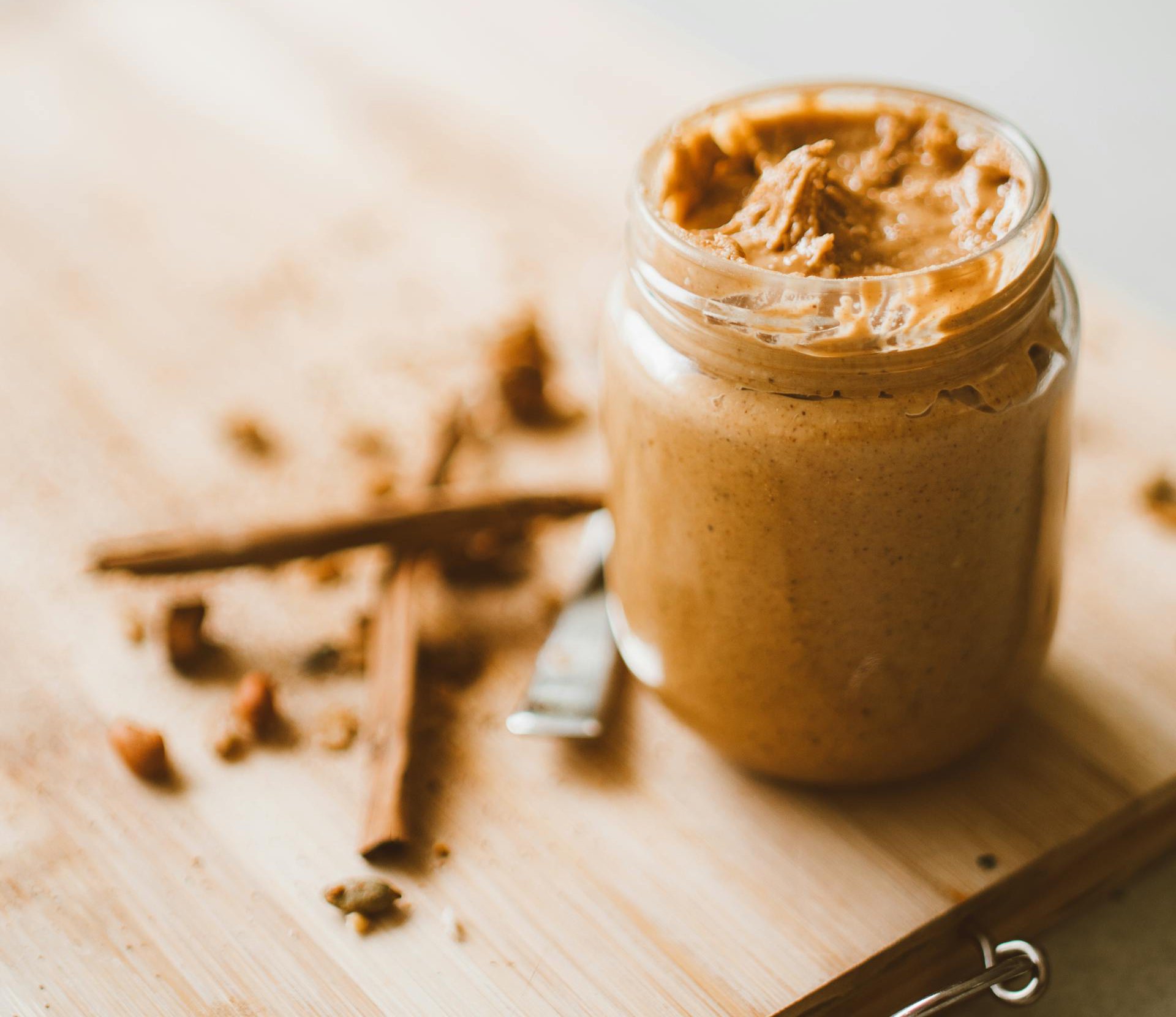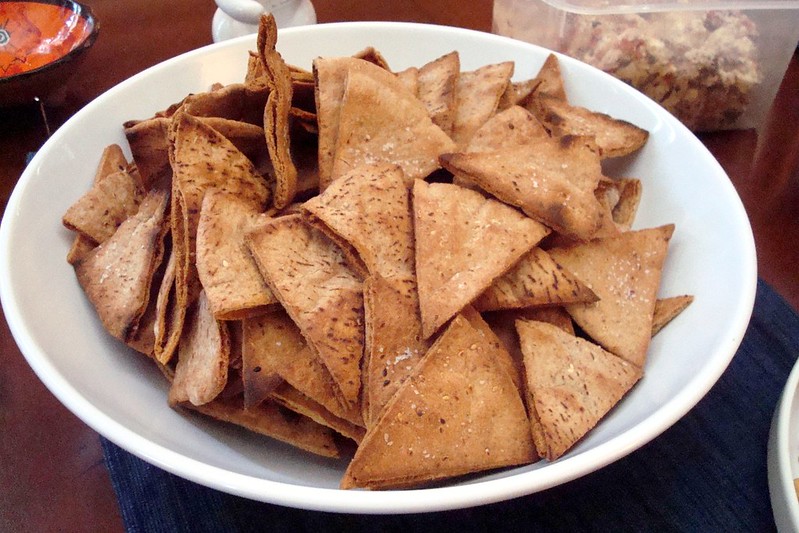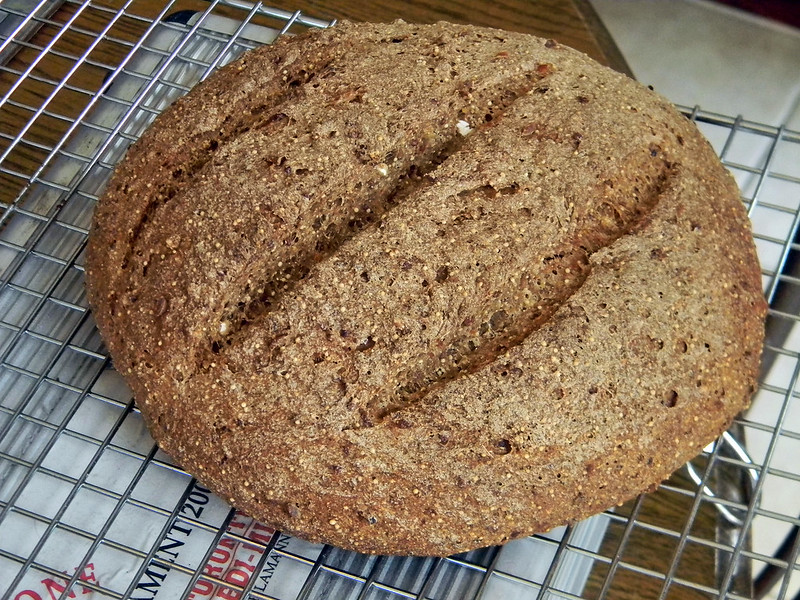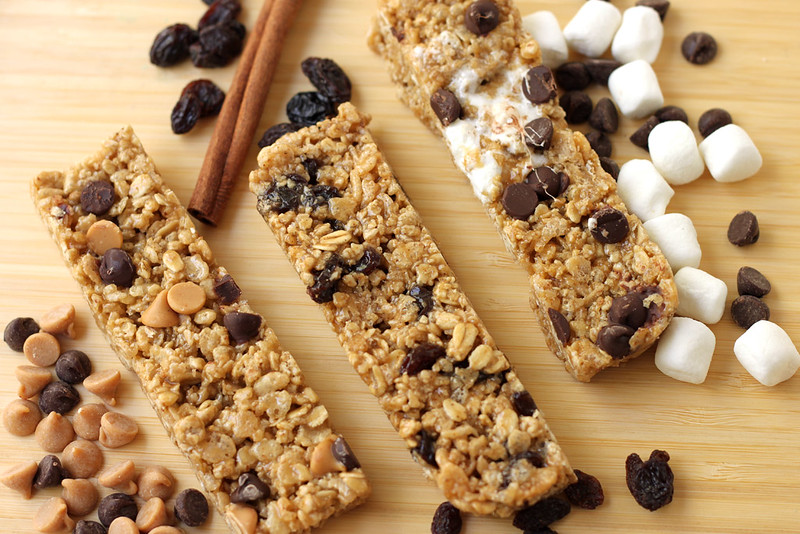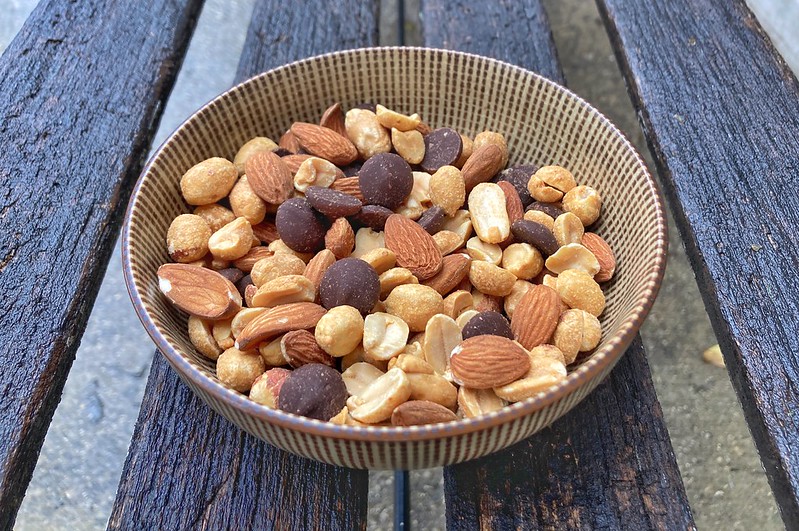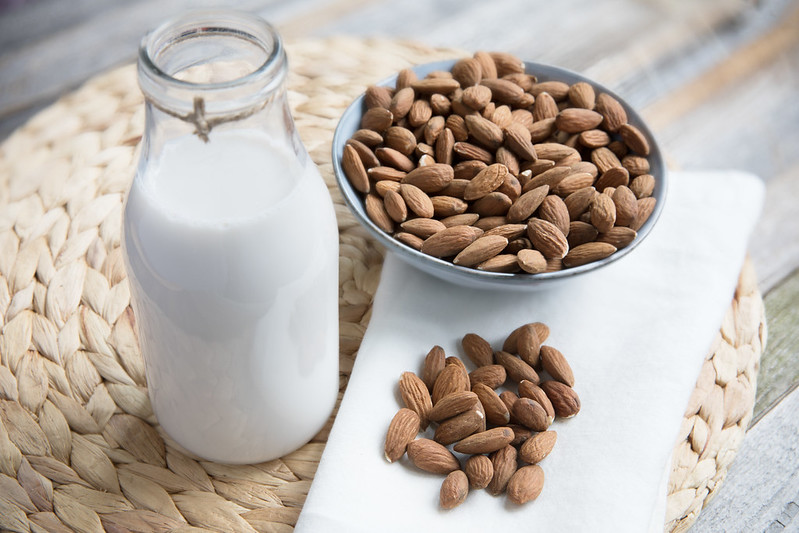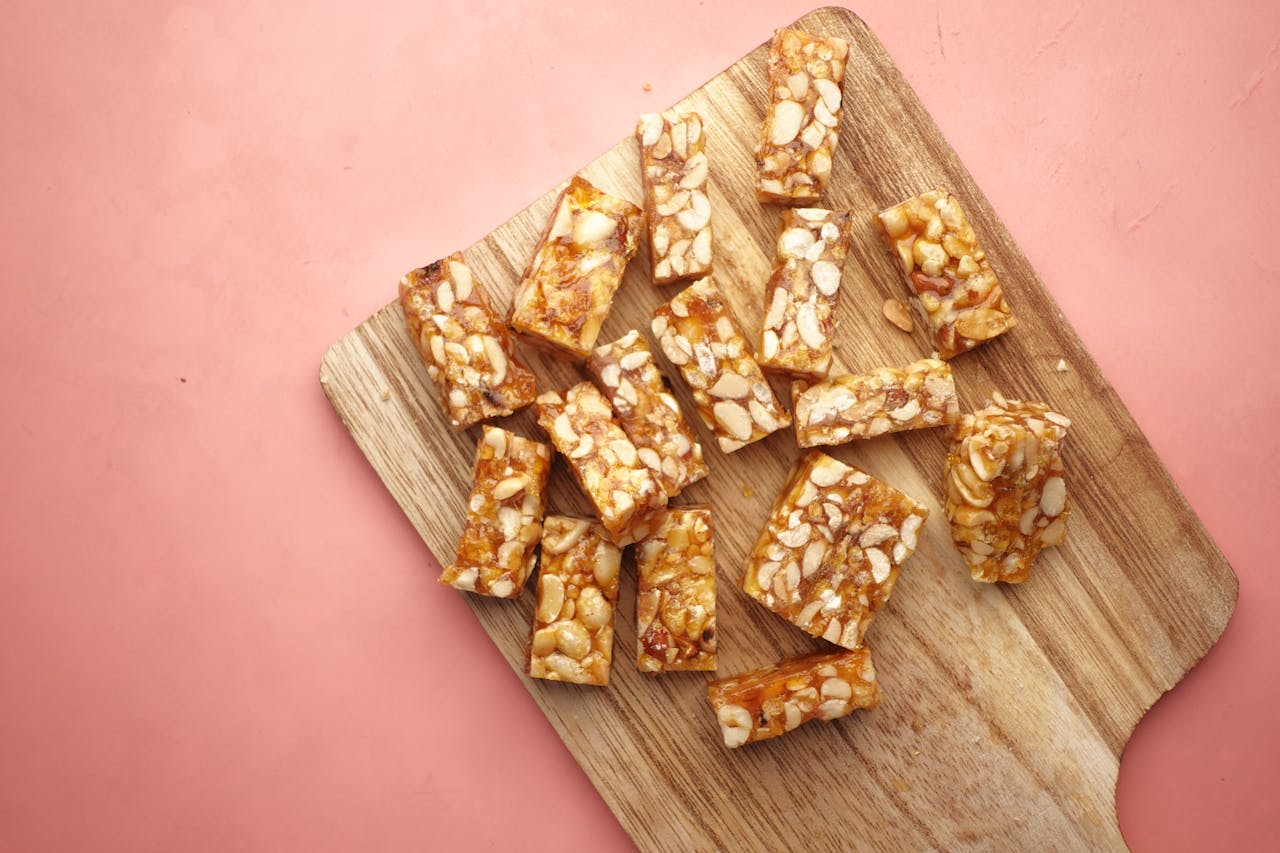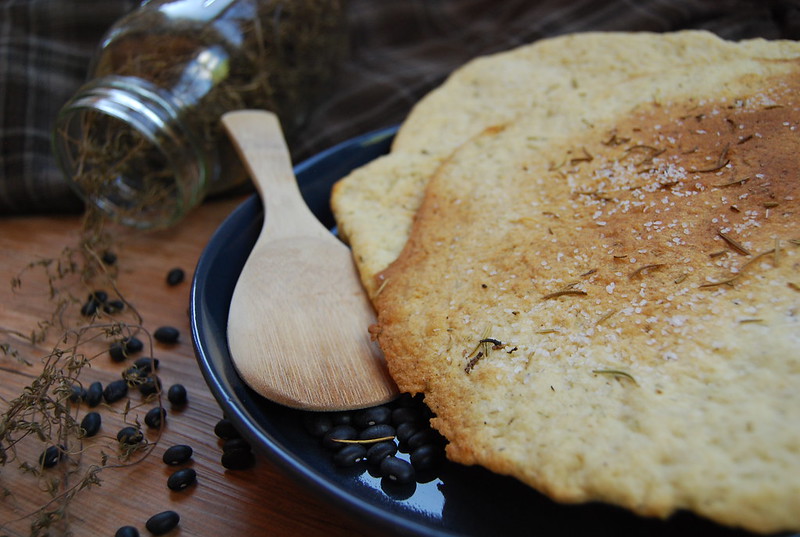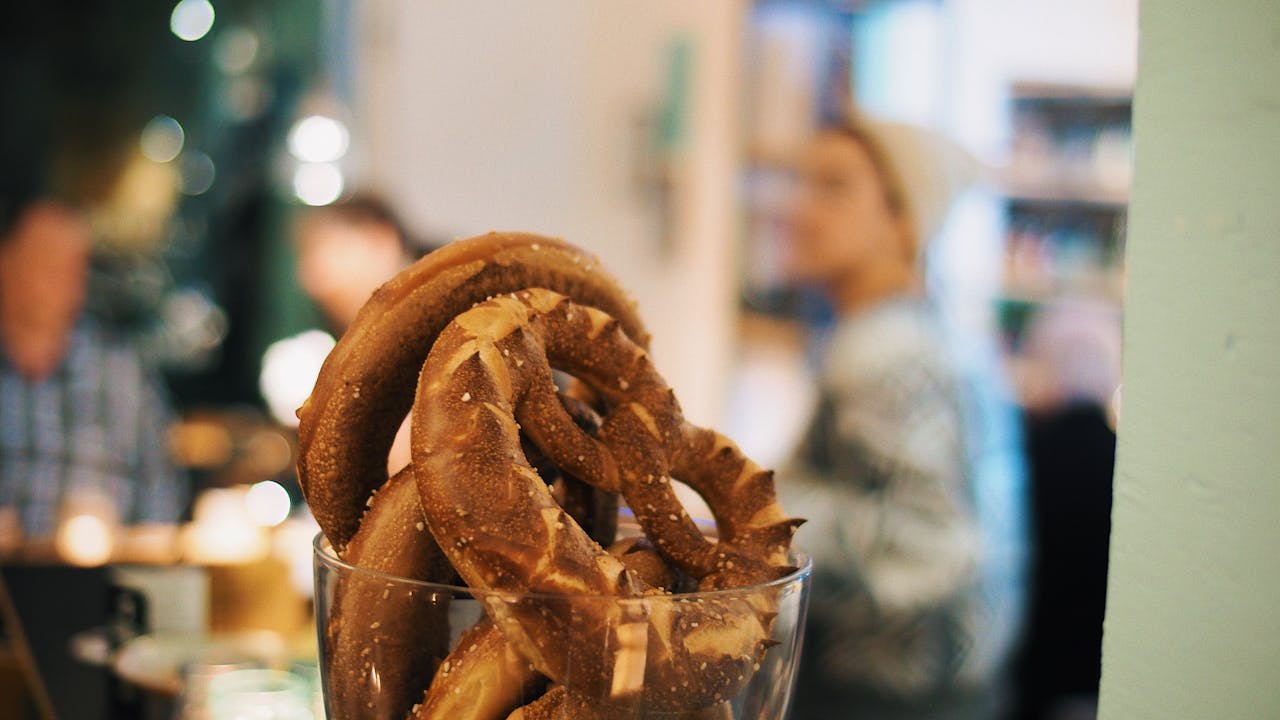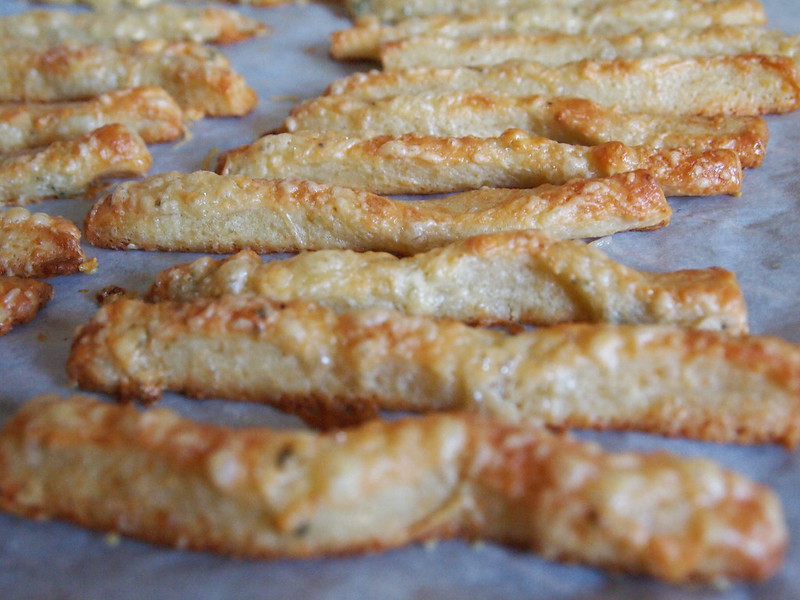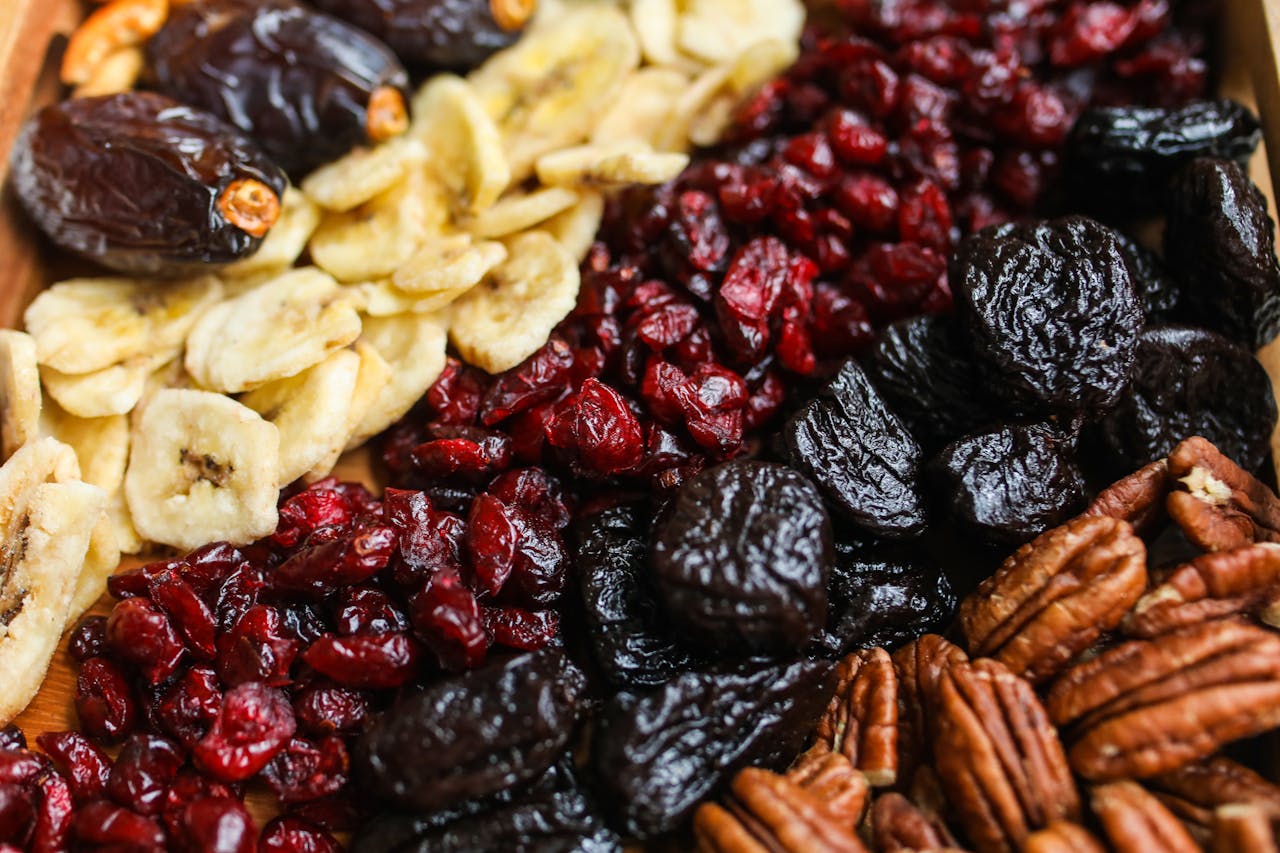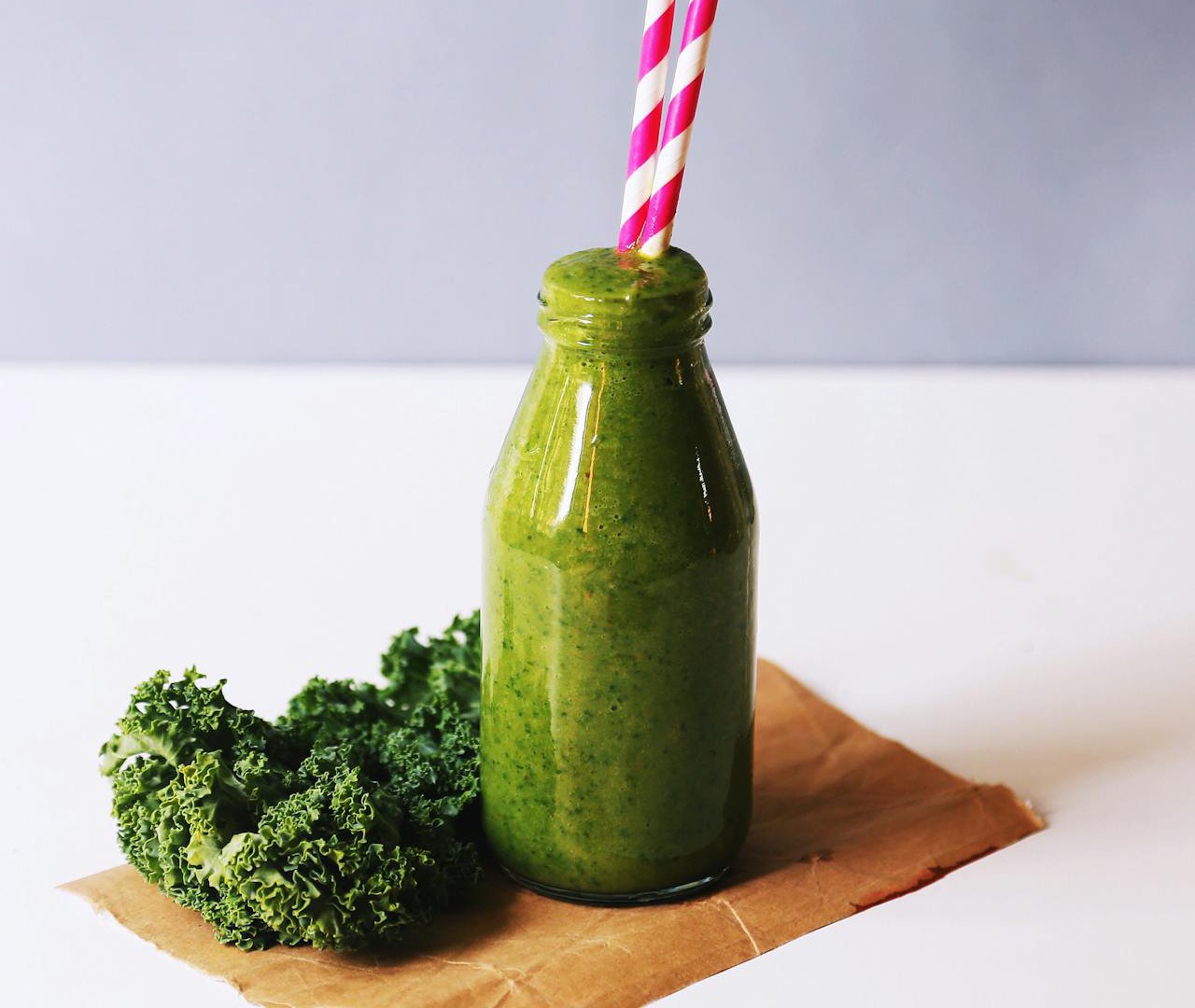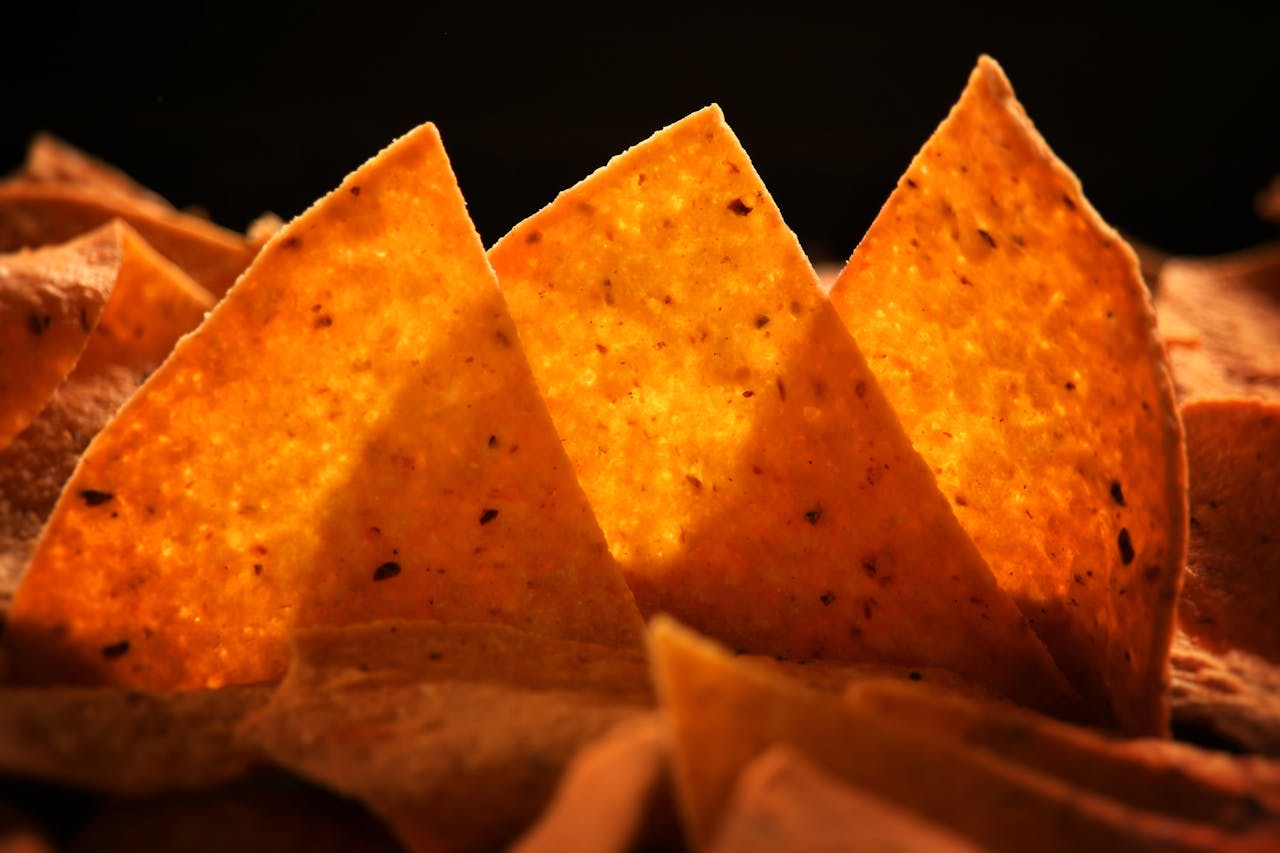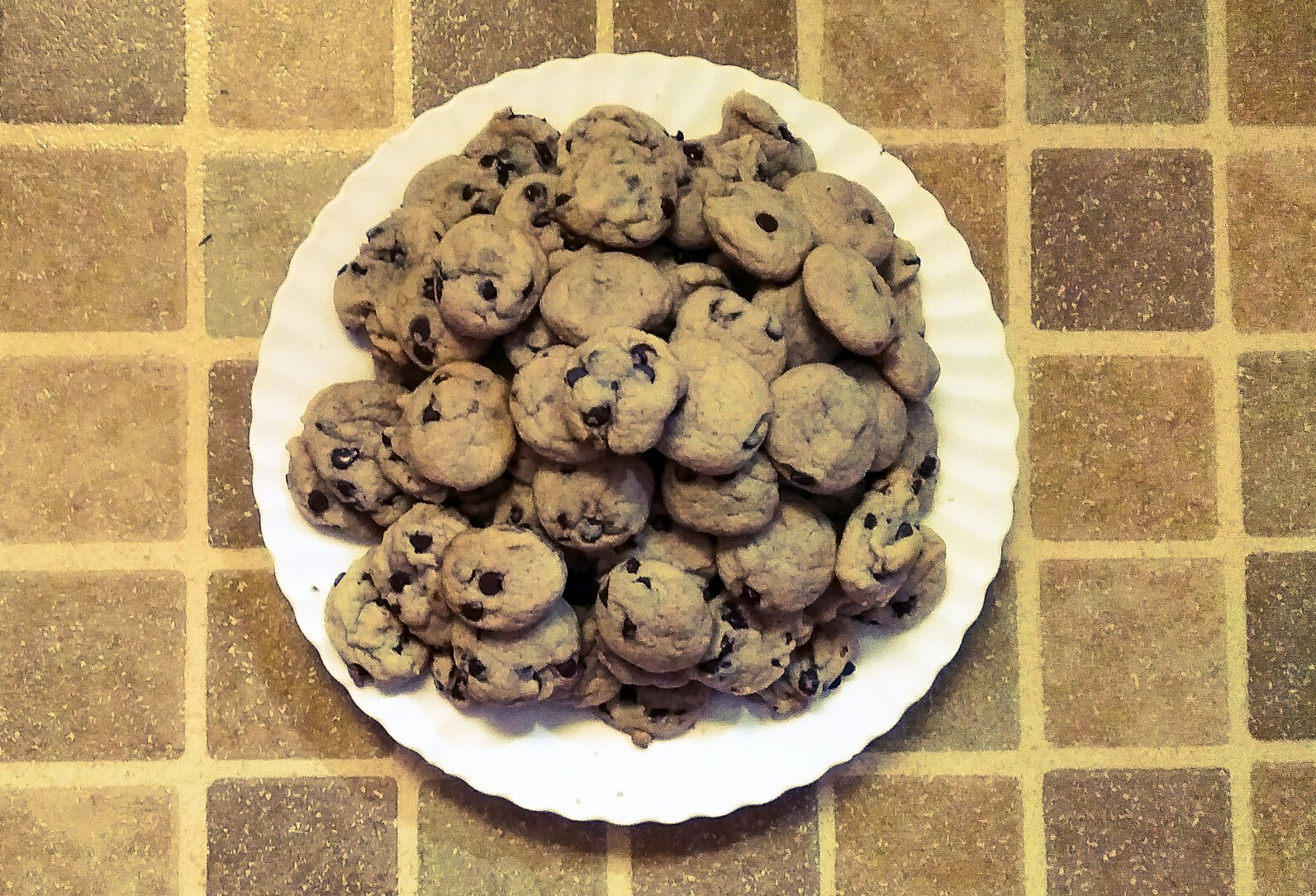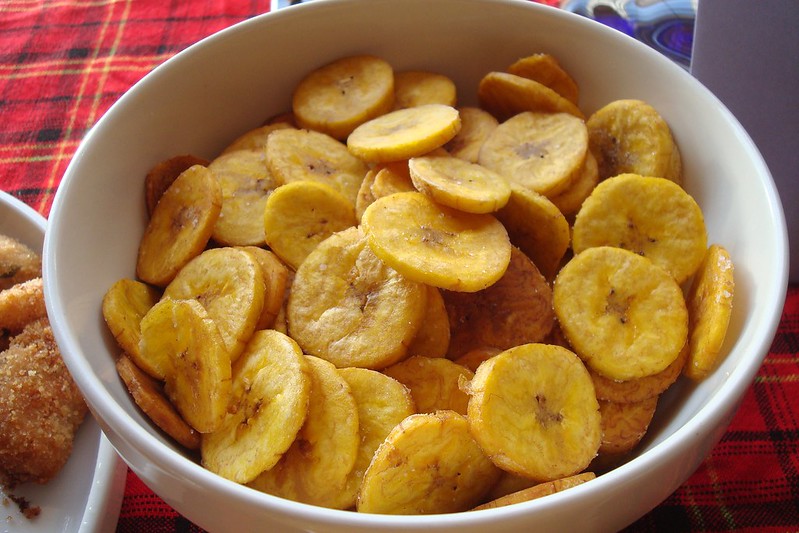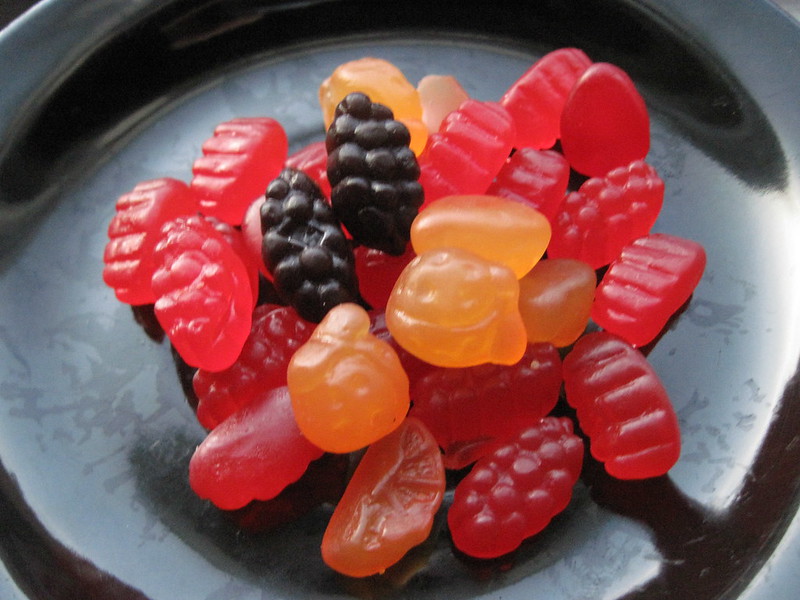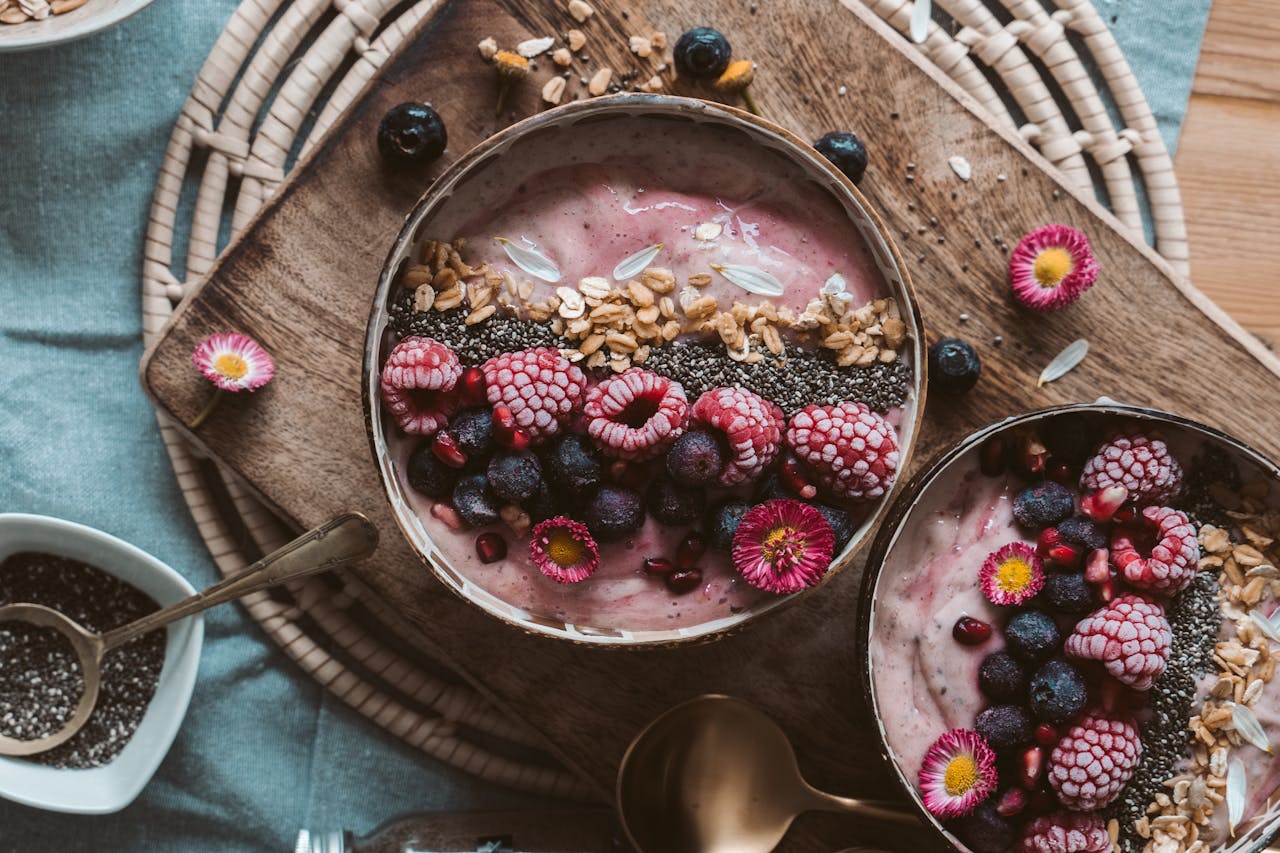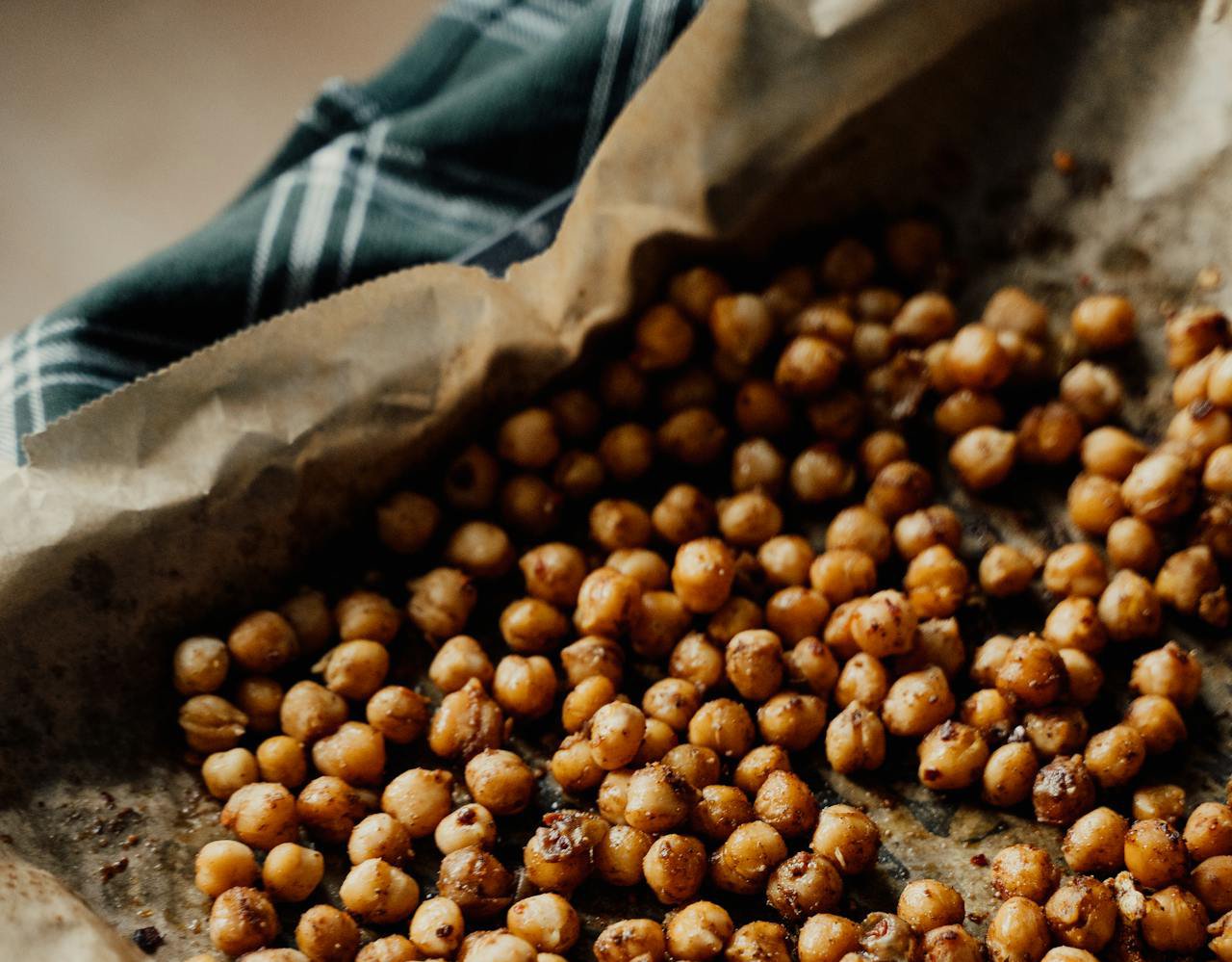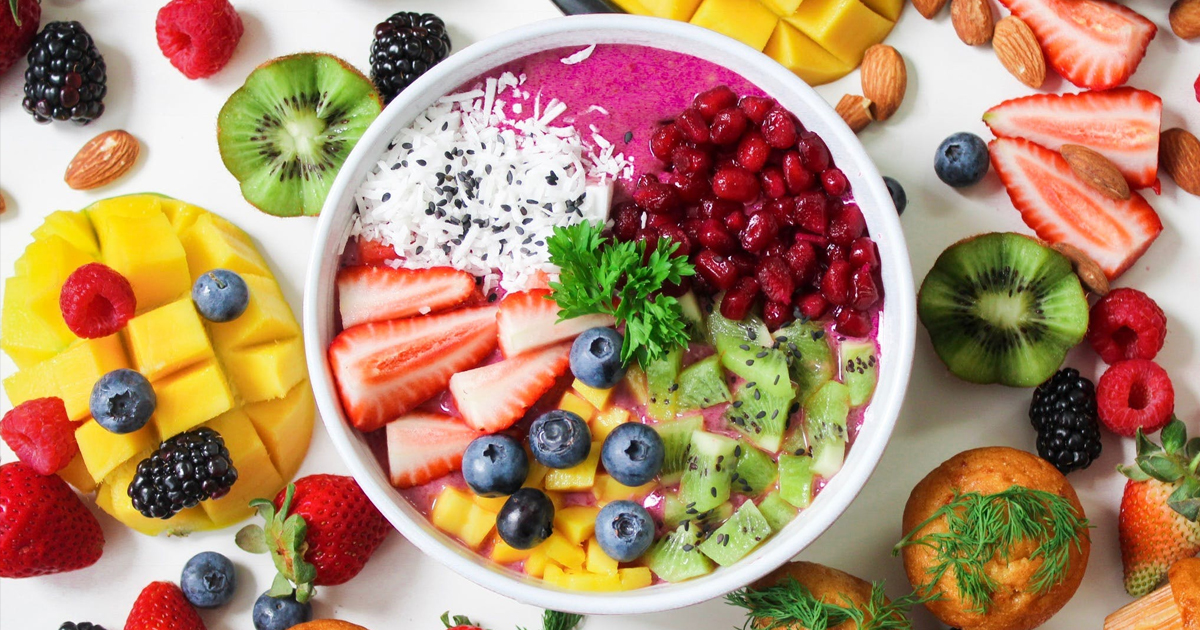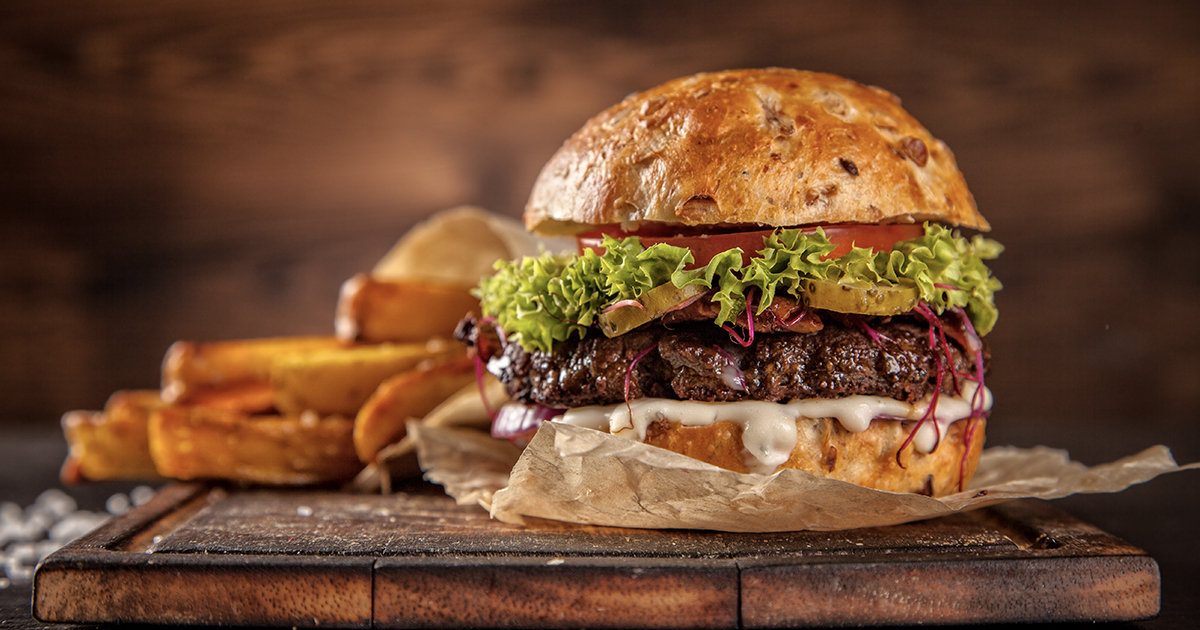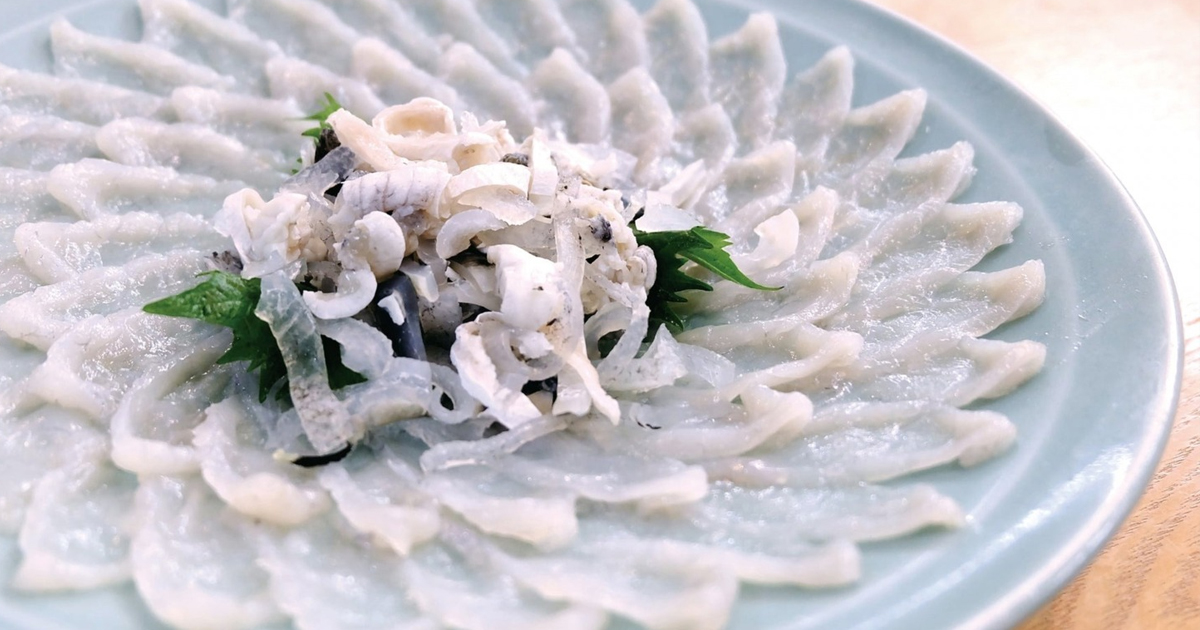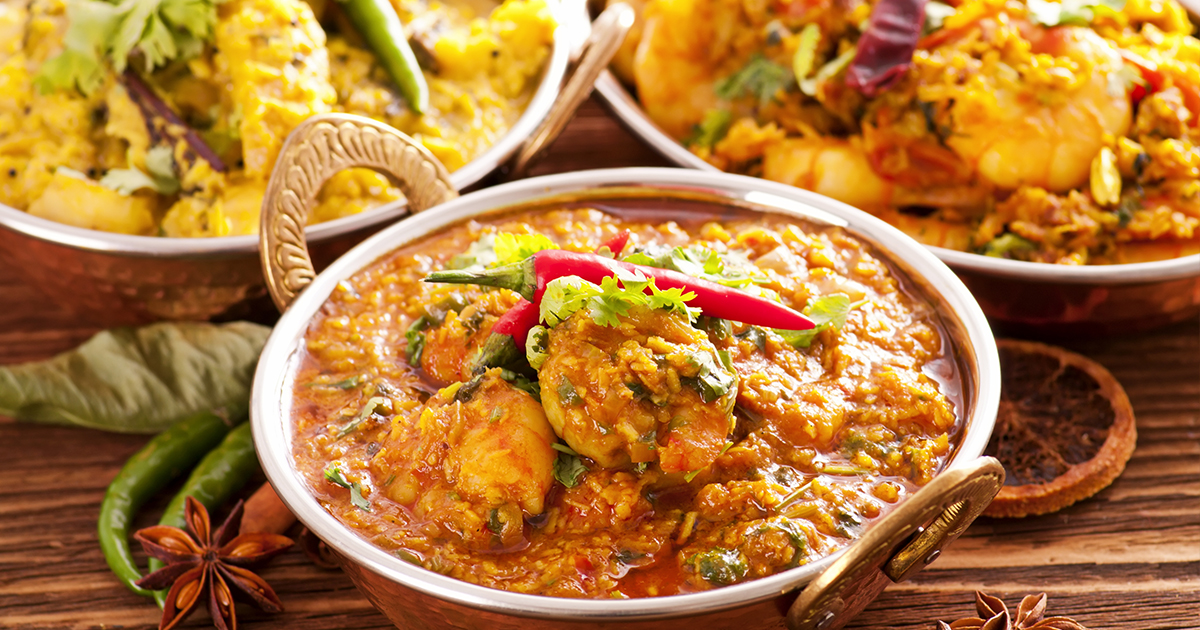Buyer Beware
You might think you’re eating right, but odds are that those healthy snacks you’re eating are less beneficial than they seem. Are any of your favorite snacks on this list of secretly bad eats?
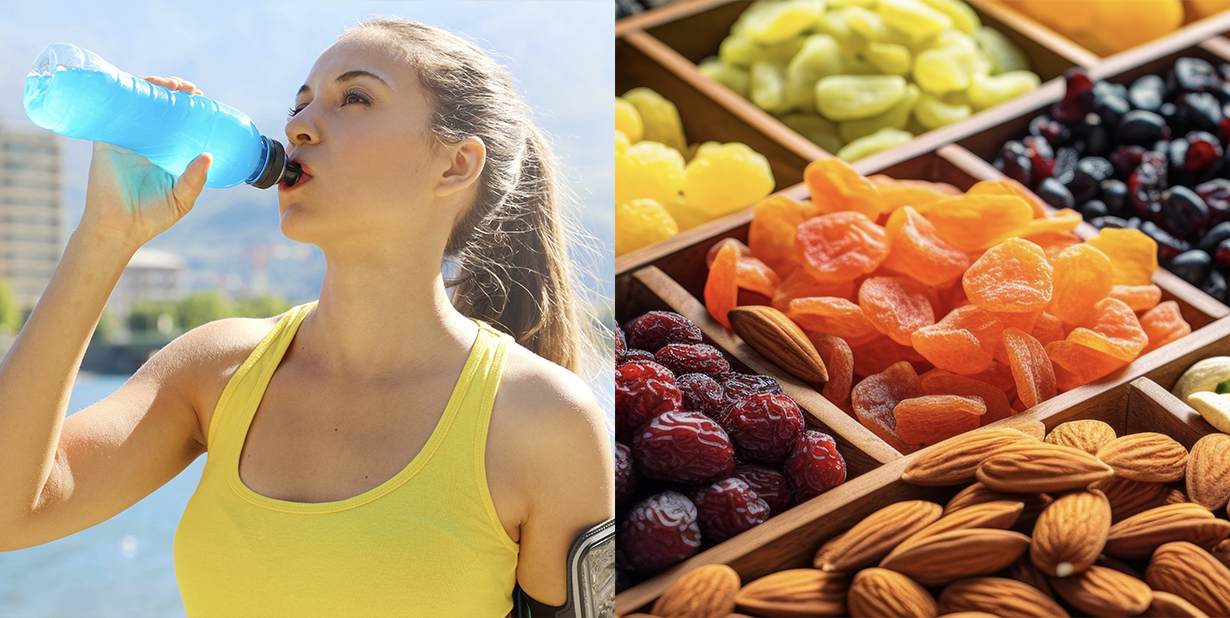
1. Granola
Whether it's sprinkled on yogurt or eaten as a snack bar, granola is often full of fat and sugar. Despite starting with nutritious ingredients like rolled oats, dried fruits, nuts, and seeds, manufacturers typically coat them in sweeteners and bake them in oil.
For an alternative, consider muesli. Muesli has the same wholesome ingredients as granola but without the added sugar and oil.
2. Fruit Bars
Fruit bars may seem like a healthier alternative to candy, but they're still packed with sugar. According to dietitians, all-fruit bars tend to be high in sugar and lacking in fiber, making them less healthy than they seem.
3. Yogurt
Yogurt is celebrated for its natural probiotics, which are great for gut health. However, not all yogurt is equally nutritious. Frozen yogurt, for example, isn't that much healthier than ice cream. Flavored yogurts, especially those aimed at children, are also high in added sugars.
For a healthier option, choose plain low-fat Greek yogurt and add to its flavor with fresh berries, bananas, or other fruits.
4. Bottled Smoothies
Pre-packaged smoothies from stores rarely match the balance and nutrition of a homemade smoothie. In addition to their high sugar content, these store-bought blends often lack sufficient protein and fat to be considered a well-rounded snack.
5. Reduced-Fat Peanut Butter
These spreads match traditional peanut butter in calorie content, but they substitute fats with fillers and sugar. Also, some manufacturers enhance these reduced-fat alternatives with high-calorie artificial flavorings like chocolate or strawberry.
You’re better off sticking with authentic nut butter rather than going for imitations. The fat found in nut butters is beneficial for heart health when consumed in moderation.
6. Pita Chips
According to dietitians, whole-wheat pita chips aren't too bad, especially when paired with fiber and protein-rich hummus. However, the white ones are a different story—with zero fiber, they offer no health benefits at all.
7. Multi-Grain Bread
Many people choose multi-grain or seven-grain breads thinking they're full of nutrients, but the reality often falls short. Despite containing whole grains, these breads usually feature unbleached enriched wheat flour as the main ingredient, with whole grains being the secondary ingredient.
Steer clear of breads with "enriched" at the top of the ingredient list, indicating nutrient stripping during processing. Instead, opt for breads that list whole grains like whole wheat as the main ingredient.
8. Granola Bars
Many items that are labeled as "granola bars" lack actual granola but have calorie counts that can rival full meals. According to dietitians, many granola bars are loaded with sugar, leaving you unsatisfied.
While indulging in them is okay, it's essential to recognize their true nature: a delicious snack, not a nutritious staple.
9. Vegan/Paleo Cookies
I really wish these could be beneficial, but as dietitians point out, a "healthy" label doesn't guarantee actual nutrition. Vegan cookies often contain high sugar and refined carbs, while paleo versions might be loaded with saturated fats from eggs or butter.
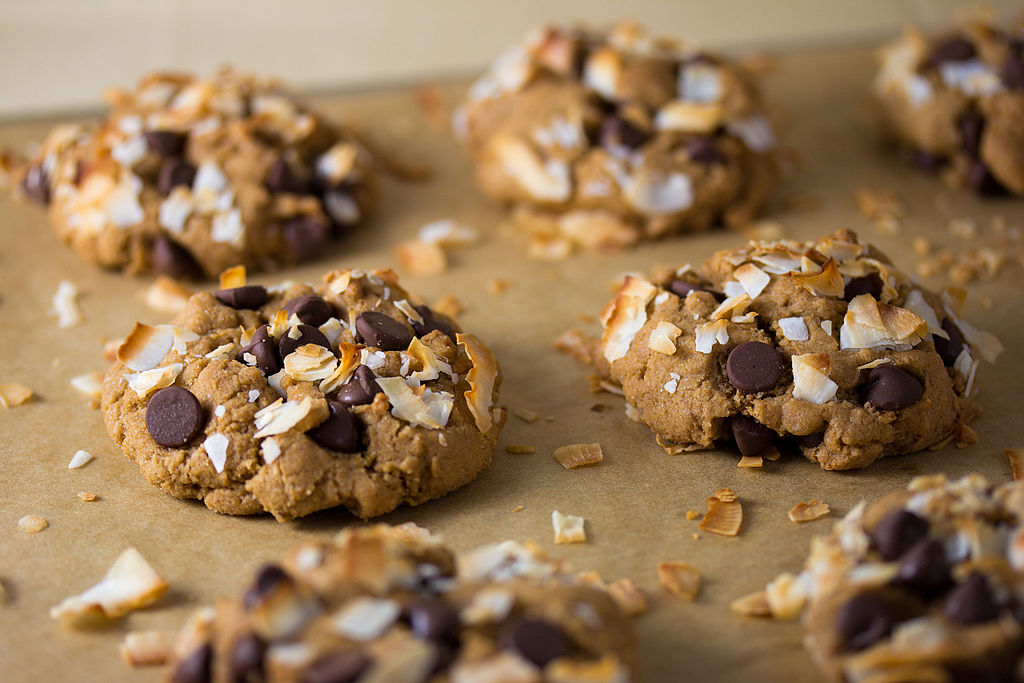 Veganbaking.net, CC BY-SA 2.0,Wikimedia Commons
Veganbaking.net, CC BY-SA 2.0,Wikimedia Commons
10. Sports Drinks
Unless you're a marathon runner or workout for more than two hours, sports drinks for electrolyte replacement aren't necessary. For the average person, they just add extra sugar to an already calorie-rich diet.
Opting for water instead of energy drinks is a healthier—and cheaper—alternative.
11. Trail Mix
It’s pretty obvious that a tub of trail mix filled with peanut butter cups and chocolate-covered almonds isn't the healthiest choice. But even the classic combination of peanuts, raisins, almonds, and M&Ms still has a lot of sugar, resembling candy more than a healthy snack.
12. Salted/Flavored Nuts
When it comes to nuts, be cautious of the salted or flavored kinds. Sweet-seasoned nuts, like honey-roasted peanuts, can hide high sugar content, while savory flavors tend to be full of sodium.
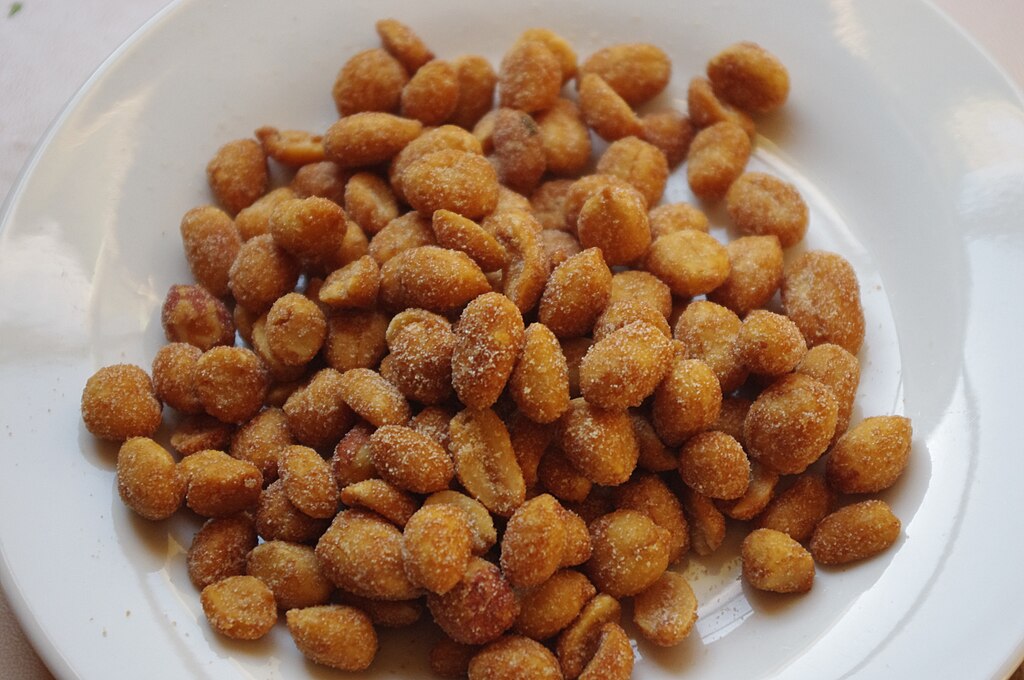 Glane23, CC BY-SA 4.0, Wikimedia Commons
Glane23, CC BY-SA 4.0, Wikimedia Commons
13. Plant-Based Milks
While many people see plant-based milks like soy, almond, and rice as superior to cow's milk, they don't offer the same nutrients. Moreover, many plant-based options, especially flavored milks, contain high levels of fat and sugar.
Unless you have an allergy or strong preference, go for cow's milk over plant-based alternatives.
14. Chocolate/Yogurt-Covered Nuts
Candy-coated nuts might give the impression of being healthy, especially considering the protein in nuts. However, whether almonds are coated in Greek yogurt or dark chocolate, they often contain added sugar. It's another case of candy cleverly disguised as health food.
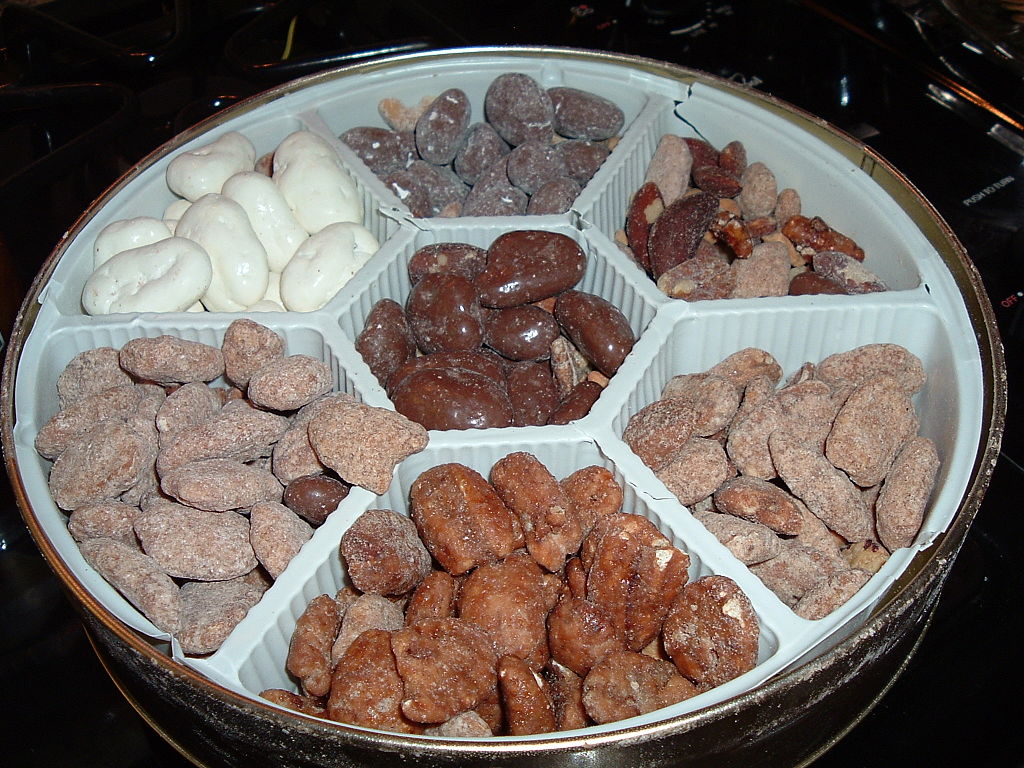 Glen Edelson, CC BY 2.0, Wikimedia Commons
Glen Edelson, CC BY 2.0, Wikimedia Commons
15. Protein Bars
Similar to numerous granola bars, many protein bars also contain high levels of sugar, despite claims of muscle-building benefits. If they don't have high sugar content, look out for artificial sweeteners on the ingredients list.
16. Flatbread
Choosing a wrap over bread for your sandwich might seem like a healthier option, but it's often higher in calories. Whether it's flatbread, lavash, or tortillas, wraps tend to be denser and larger than two slices of regular bread because they don't have the air or yeast that makes bread rise.
For a lower-calorie alternative, consider using romaine lettuce to wrap your sandwiches or go for open-faced sandwiches with whole-wheat bread.
17. Gluten-Free Pretzels
The lack of gluten in pretzels doesn't necessarily indicate their nutritional value, which is pretty poor. Dietitians say that most gluten-free pretzels are made out of nutrient-poor, low-fiber starches like cassava flour, rice flour, or tapioca flour.
18. Fat-Free Cheese Sticks
Dietitians emphasize the importance of fiber in a healthy snack, and cheese sticks don't meet this criterion. Instead, experts suggest opting for plant-based snacks.
19. Multi-Grain Chips
Despite their natural appearance, multi-grain chips are usually made primarily of refined carbohydrates and lack fiber. This can lead to overeating since they don't give you the feeling of being full.
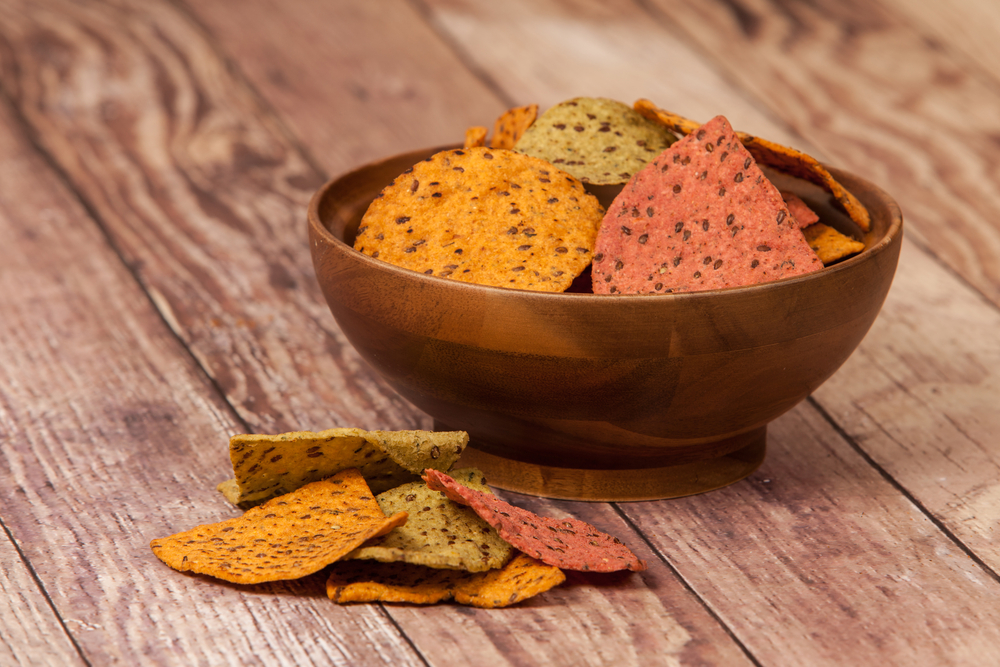 Lorraine Kourafas, Shutterstock
Lorraine Kourafas, Shutterstock
20. Dried Fruit
This is a potentially healthy choice, but the challenge with dried fruit lies in moderation. Because it makes you feel less full compared to fresh fruit, it's easy to eat too much.
21. Fruit/Veggie Juice
The main difference between fruit and vegetable juices and whole fruits and vegetables? It's the presence of fiber, which you definitely don't want to overlook, advise dietitians.
22. Sugar-Free Candy
Sugar-free candy may contain less sugar than traditional candy, but that doesn't automatically make it a healthier choice. Experts say that emerging evidence indicates certain artificial sweeteners could have negative effects on gut health.
Instead of munching on guilt-free candies made with alternative sweeteners, just indulge in the real thing when you feel like treating yourself.
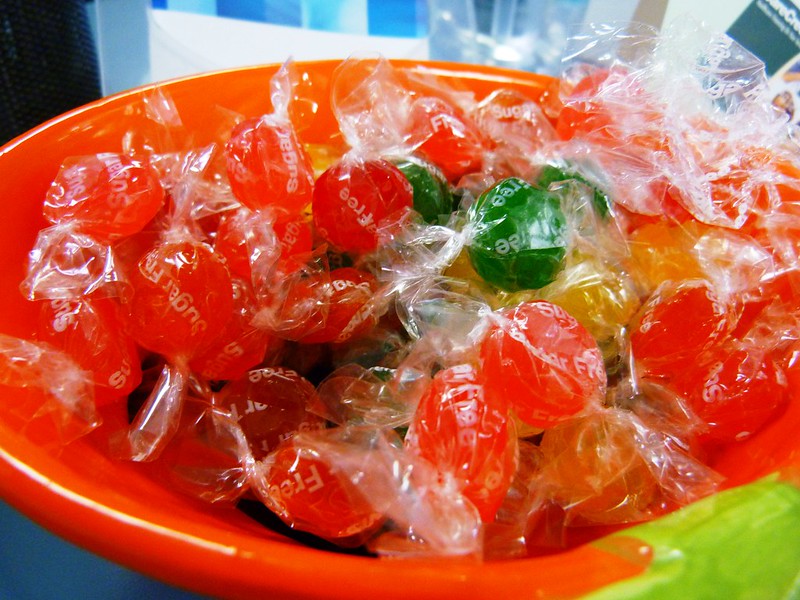 Rusty Clark ~ 100K Photos, Flickr
Rusty Clark ~ 100K Photos, Flickr
23. Corn Chips
Despite the current trend of avoiding gluten, low-fiber, low-protein corn chips aren't an ideal snack for satisfaction, according to dietitians. In fact, they're more likely to lead to overeating.
24. (Sweetened) Beef Jerky
Interested in a protein serving accompanied by sugar? Take a look at the ingredient list on many bags of beef jerky, and you'll see plenty of added sugars, ranging from fructose to maple syrup to molasses. Some savory jerkies contain nearly 10 grams of sugar.
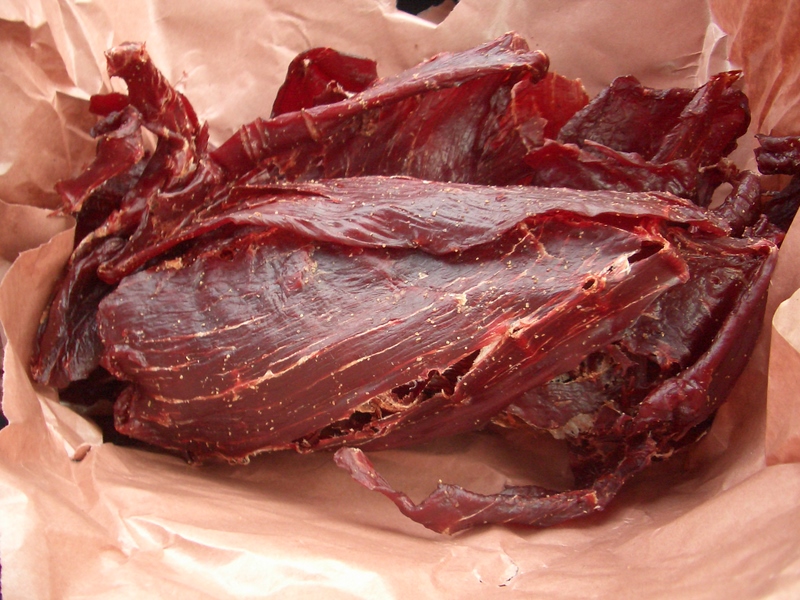 are you gonna eat that, Flickr
are you gonna eat that, Flickr
25. Anything That’s “100 Calories Only”
Let's face it: Snacks packaged in 100-calorie packs are usually just small portions of highly processed foods, like mini chocolate chip cookies. Dietitians say that they often lack filling fiber, leading you to reach for a second serving.
26. Plantain Chips
One advantage of plantain chips is their content of resistant starch, which supports beneficial gut bacteria. However, since they're typically fried, you've got to be mindful of your serving size.
27. Fruit Gummies
Even if fruity gummies claim they're "made with real fruit and vegetable juice," they usually still contain added sugar. Often, the fruits and veggies are listed near the bottom of the ingredients list.
28. Veggie Chips Or Straws
If you really want to reap the health benefit from vegetables, it's best to stick to the produce department rather than the snack aisle. Many veggie chips claim to be a healthier alternative to fried chips, but you’ve got to check the label—most of these snacks don't list actual vegetables until much further down the ingredient list.
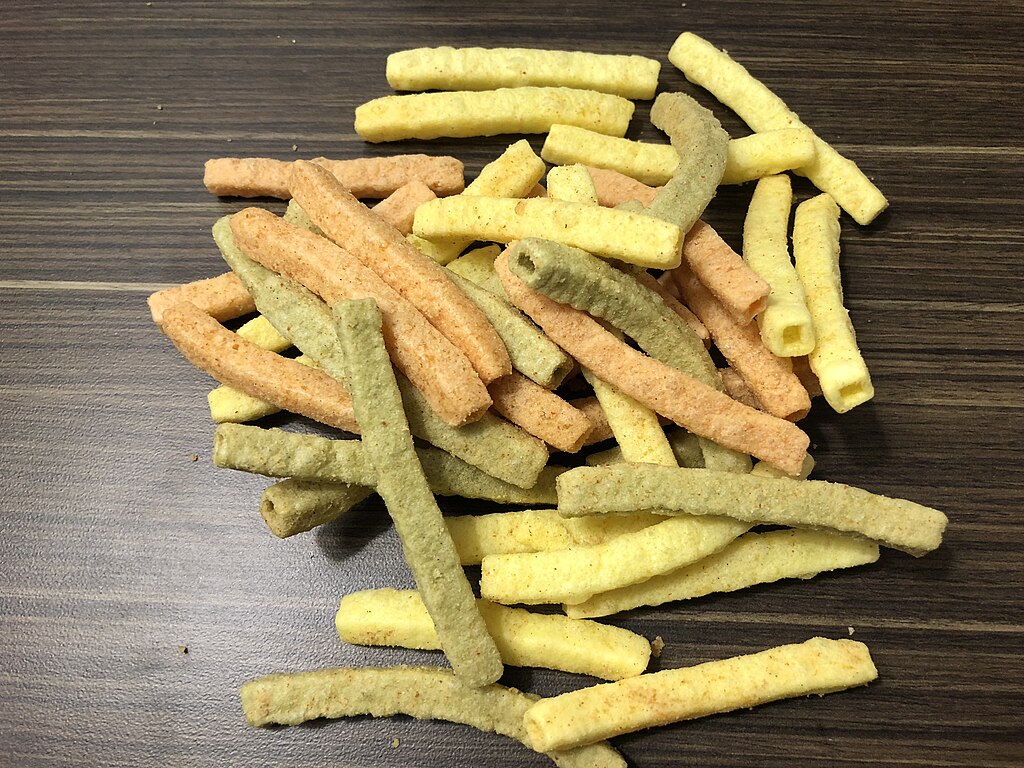 Famartin, CC BY-SA 4.0, Wikimedia Commons
Famartin, CC BY-SA 4.0, Wikimedia Commons
29. Acai Bowls
It's a harsh reality: Those trendy granola- and fruit-topped acai bowls can pack over 500 calories and more than 100 grams of carbs, with much of it coming from added sugars.
Surprisingly, they're not too far off from indulging in a bowl of ice cream.
30. Flavored Roasted Beans
Crunchy roasted beans or chickpeas do give you protein and fiber, but they're often roasted in oil and flavored with excessive salt and sugar.
To make a healthier choice, look for options that are dry-roasted and low in sodium, or consider making your own to have control over the ingredients.

